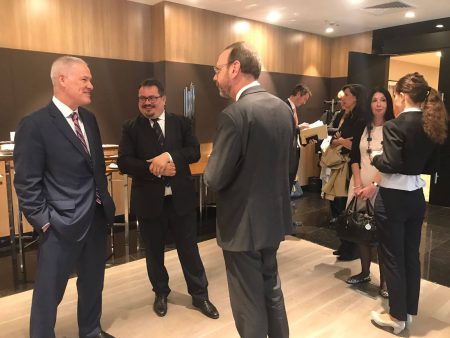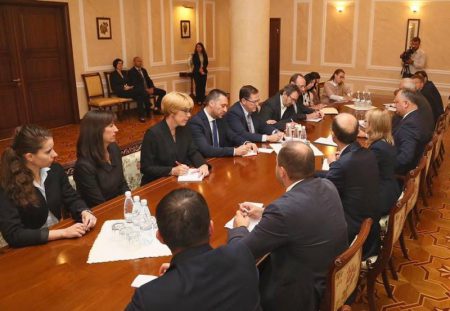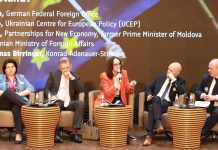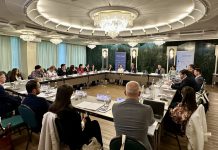GMF Study Tour to Moldova, October 2017
The German Marshall Fund of the United States (GMF) and its local partner Foreign Policy Association (APE) organized a study tour to Moldova during October 1 – 4, 2017. A delegation of ten, comprised of EU and US decision makers, experts and journalists traveled to Moldova to learn about its current political, economic and social evolutions. While in Chisinau, Moldova’s capital, the delegation met with senior Moldovan officials, including Igor Dodon, President of Moldova, Pavel Filip, Prime-Minister, and George Balan, Deputy-Prime Minister for Reintegration. The delegation also met with the representatives of the opposition parties such as Andrei Nastase, Chairman of the Platform Dignity and Truth Party (PDA), Maia Sandu, Chairwoman of the Action and Solidarity Party (PAS), and Viorel Cibotaru, Chairman of the Liberal Democratic Party of Moldova (PLDM). Meetings with representatives of Moldovan civil society, journalists, as well as international organizations and foreign embassies on the ground also took place, allowing the participants to familiarize themselves with the challenges Moldova is facing in its efforts to implement reforms in fighting corruption, reforming the judiciary and the implementation of the Association Agreement with the EU.
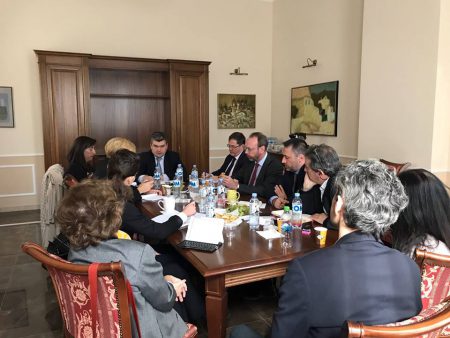
This visit was organized as part of GMF’s ongoing efforts to further push the dialogue on a comprehensive and sustained approach of the Euro-Atlantic community to the Black Sea region. GMF’s role and reputation in promoting the region was eloquently underlined by one of the participants in the study tour to Moldova:
“The schedule was, as I stated many times, just superb. To have Ambassadors comment to me that they can’t get their official government delegations this kind of schedule proves the reach of GMF and partners in being an active and engaged transatlantic player. ”
Study tours to the countries of the Black Sea region have been one of GMF’s hallmarks over the past decade and a half raising the profile of the region by contributing to increase awareness of the issues facing these countries. The tours increase firsthand knowledge of the region, inform policy decisions, and highlight the region by generating media attention.
